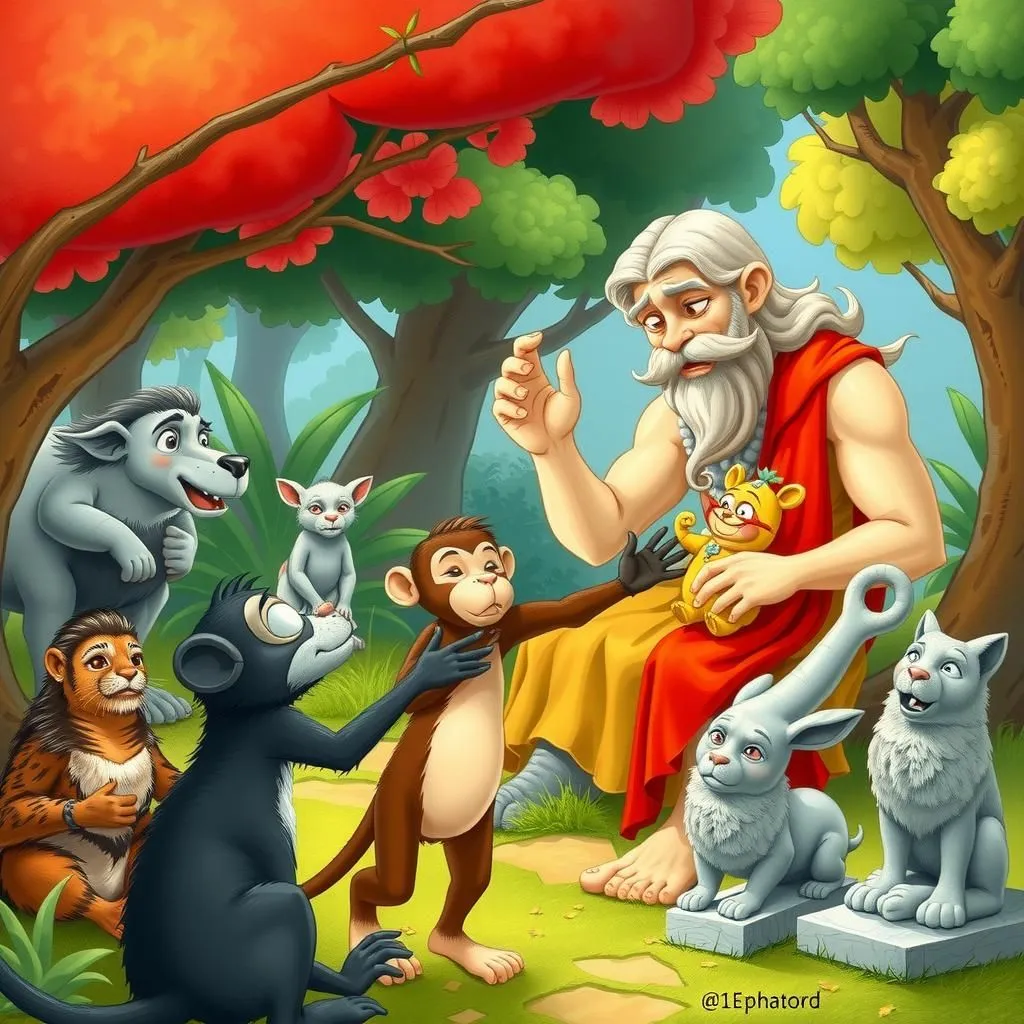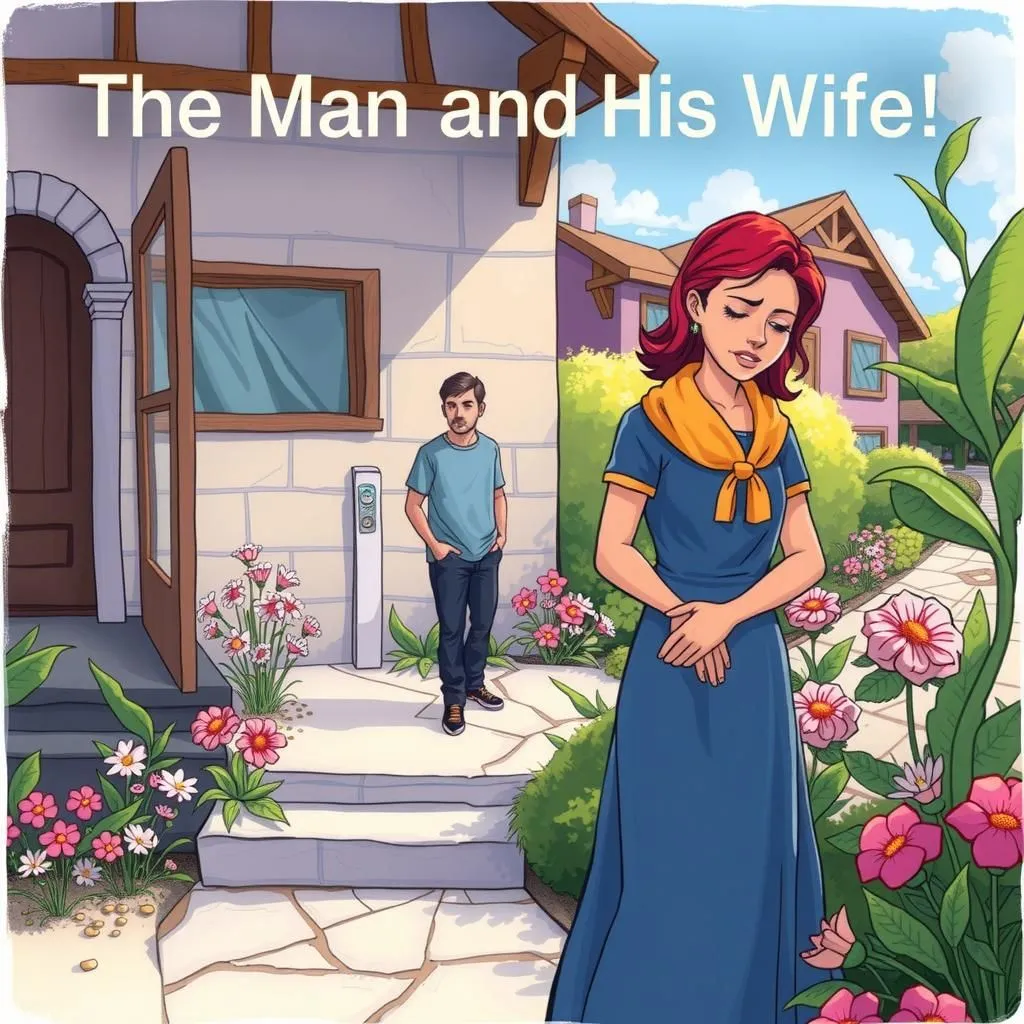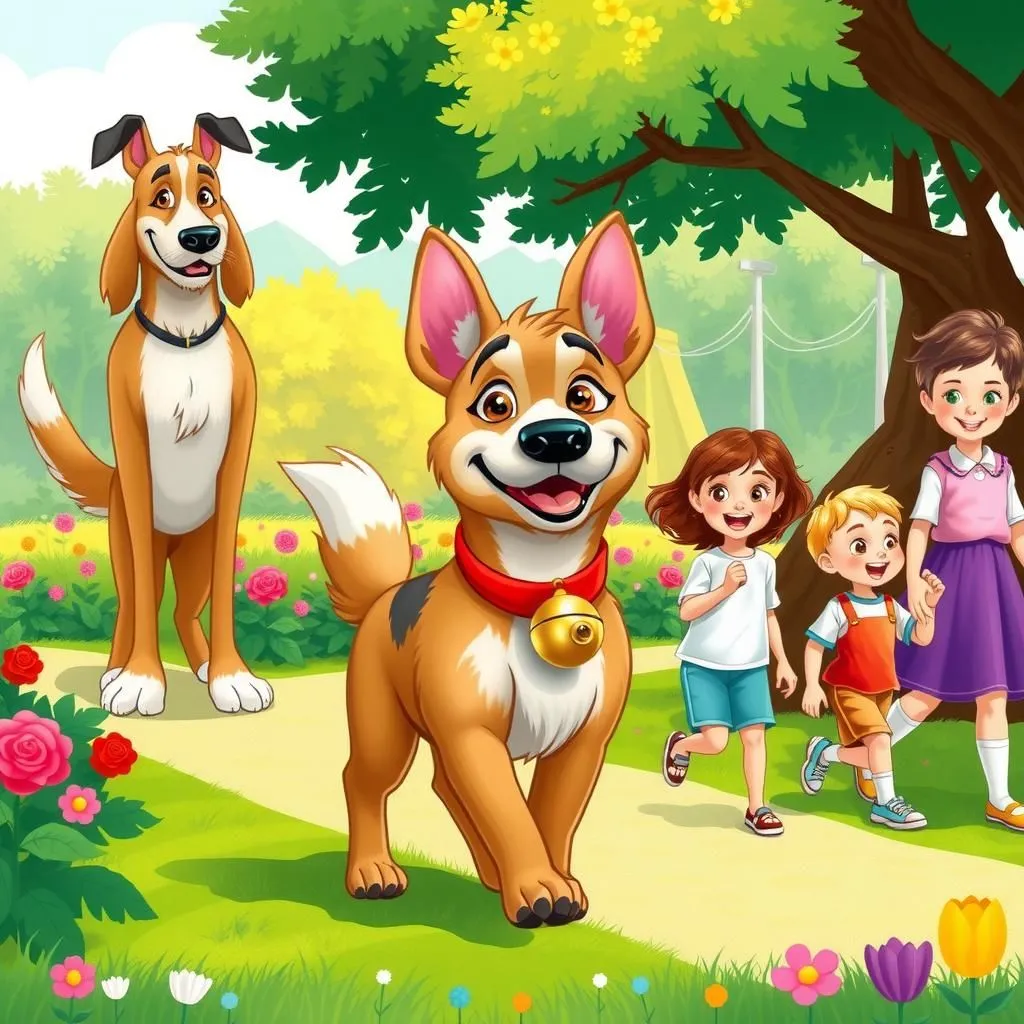
Jupiter and the Baby Show
In "Jupiter and the Baby Show," a clever Monkey enters her unattractive cub in a competition hosted by Jupiter, who initially mocks the cub's appearance. However, the Monkey turns the tables by highlighting the flaws in Jupiter's own offspring depicted in antique sculptures, prompting Jupiter to award her the first prize to avoid embarrassment. This impactful moral story emphasizes the value of humility and the importance of recognizing one's own imperfections, making it a noteworthy addition to short story collections with moral lessons.


